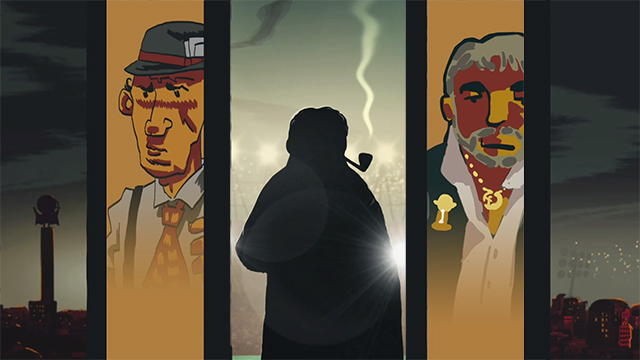Football Drama isn’t interested in comparisons to Football Manager. The indie title might look like Sports Interactive’s popular soccer management sim on the surface. Dig deeper, though, and you’ll find a game with an unusual inspiration where satire and strategy dominate proceedings.
“It’s the reason why everyone told me ‘Just don’t do a football game,’” Pietro Polsinelli, Football Drama’s creator explained. “I was careful to steer away from doing anything that resembled them.”
With 2 million copies of Football Manager 2019 sold as of July, it would be an impossible task to try and overthrow Sports Interactive’s near-perfect representation of soccer management. Coming up with a unique angle, particularly in this crowded genre, would be a necessity if Open Lab Games — the company fronted by Polsinelli — and Football Drama were to be successful.
Football Drama | Turning over a new leaf
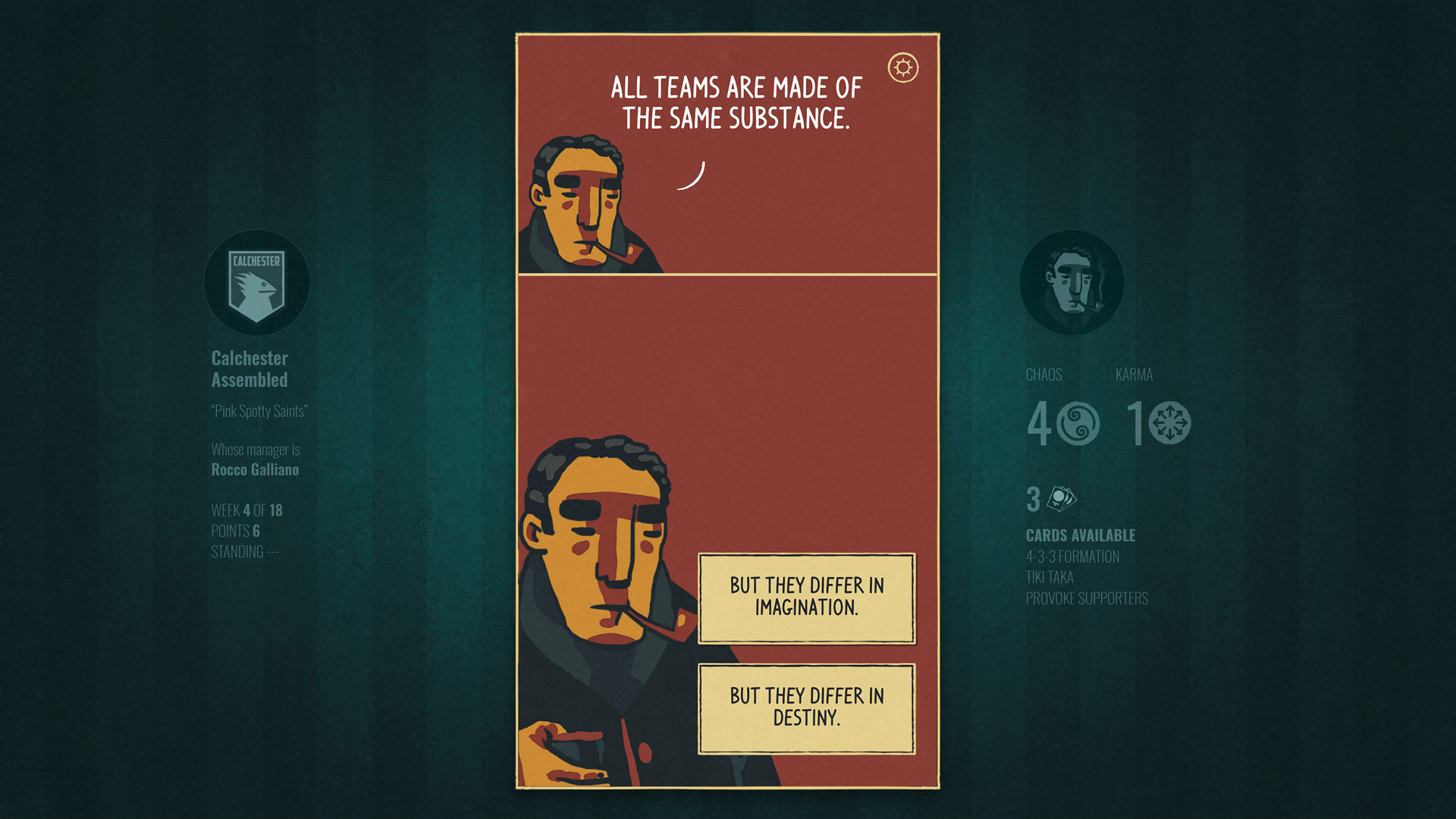
Setting Football Drama apart from its predecessors required Open Lab Games to come up with a new tactic. A distinct influence, born out of a conversation between Polsinelli and a fellow writer, sowed the first seeds that would eventually form the backbone of the game’s plot and mechanics.
“I started asking him whether his passion for writing and football had ever had any connection,” Polsinelli revealed. “He pointed me to literature on football — novels, as well as writing about society and football — so I got interested in that. Then I found that there are some interesting movies about it. So I said ‘Well, this perspective on football — as a social and literary thing — is a perspective that seems to be missing in video games. Maybe we could try doing a game around that.’ I’ve also had a passion for simple strategy games, so we put the two things together.”
Consuming books, essays, and poems from the likes of Osvaldo Soriano and Peter Handke, Polsinelli resolved to set Football Drama’s story in the fabled era of soccer rather than the athletic-based, sports science-rich era of today’s Premier League, La Liga, and MLS.
“It’s not set in a specific era, but it’s about football as it was and not what it is now,” Polsinelli said. “It’s a male-only sport which, fortunately, is not today’s football. There are also a lot of romantic, heroic, and simple aspects. It’s a simple sport and that’s not how it works today. It’s not centered on athletic performance, which is so crucial in football today, so the main things are for people that like football of the past.”
Football Drama | A sim-plistic approach
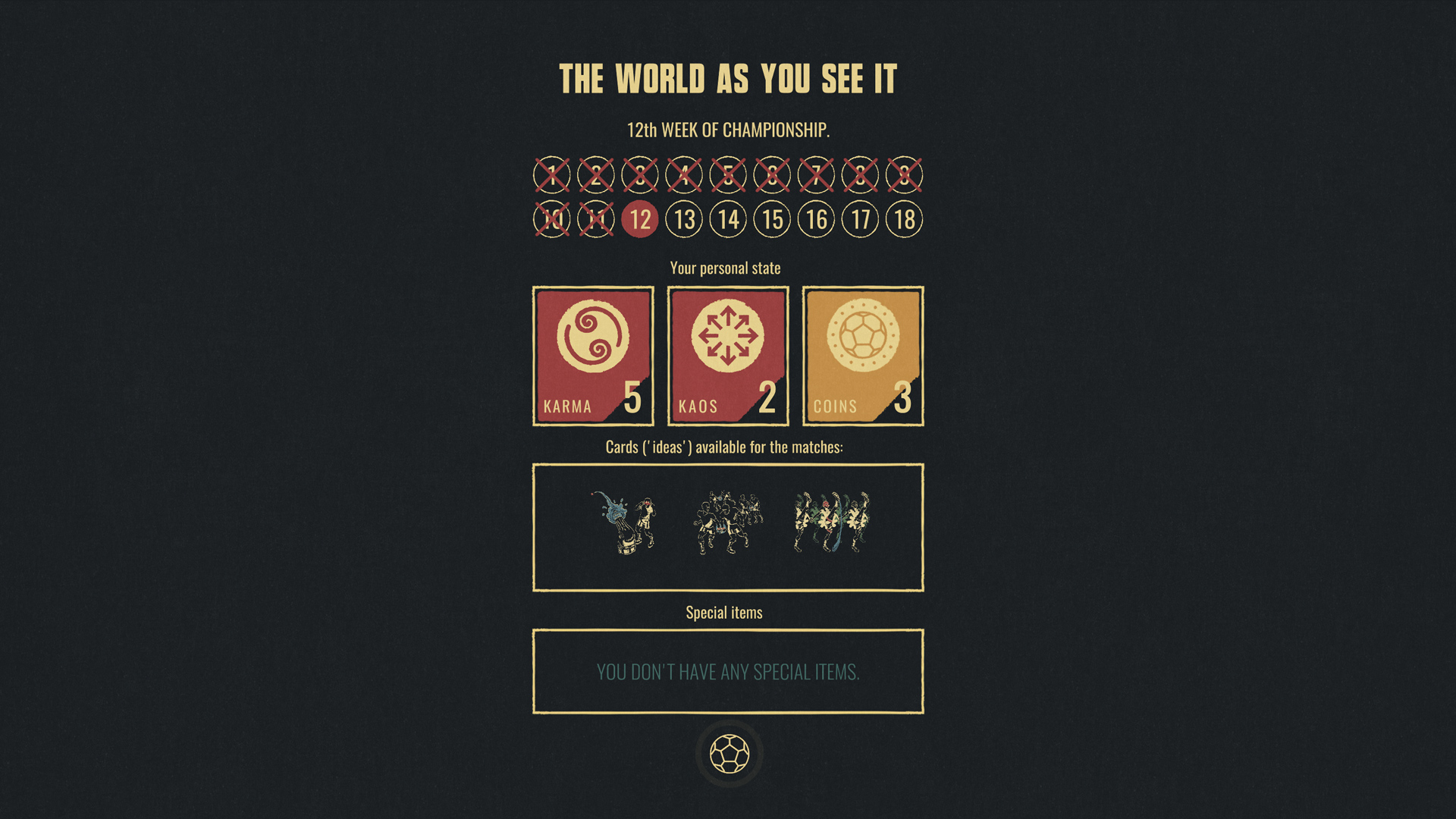
Football Drama puts you in the shoes of Rocco Galliano, a man who returns to the game after seven years away to take charge of struggling outfit Calchester FC. Rather than have you build a winning tactic, make transfers, and improve your players, Football Drama focuses on off-the-field events as much as those on it. You can decide whether or not to buy performance-enhancing drugs off the local mob, react positively or negatively during interactions with the club’s owner, the media, and even your own cat, or opt to train your players hard ahead of games instead of heading down to the local bar to drink some beers.
Every choice you make matters and has a big bearing on how your managerial reign plays out. Make the wrong choices and you could be sacked after the first week or, even worse, be sent to jail over corruption and drug offenses. Pick the right ones and you can repair your reputation and win the league. You can even miss out on the title but still “win the game” by walking away with your head held high.
It’s this blend of choose-your-own-adventure, strategy, and sports sim that distinguishes Football Drama from Football Manager and even FIFA’s “The Journey” game mode. There are 24 possible endings you can get, despite the linearity of the game’s story, which gives Football Drama a depth that you wouldn’t ordinarily expect from a story-driven soccer sim.
“There are many different endings,” Polsinelli said. “But they’re not due to the fact that there are many plots — it’s that the plot interacts with the championship. If you’re fired at any time your story ends there. If you do chaotic or karma-tic – as we say – choices in your life it influences the matches a lot so things may change there. It’s this combination that gives the result.”
Football Drama | Satire and strategy
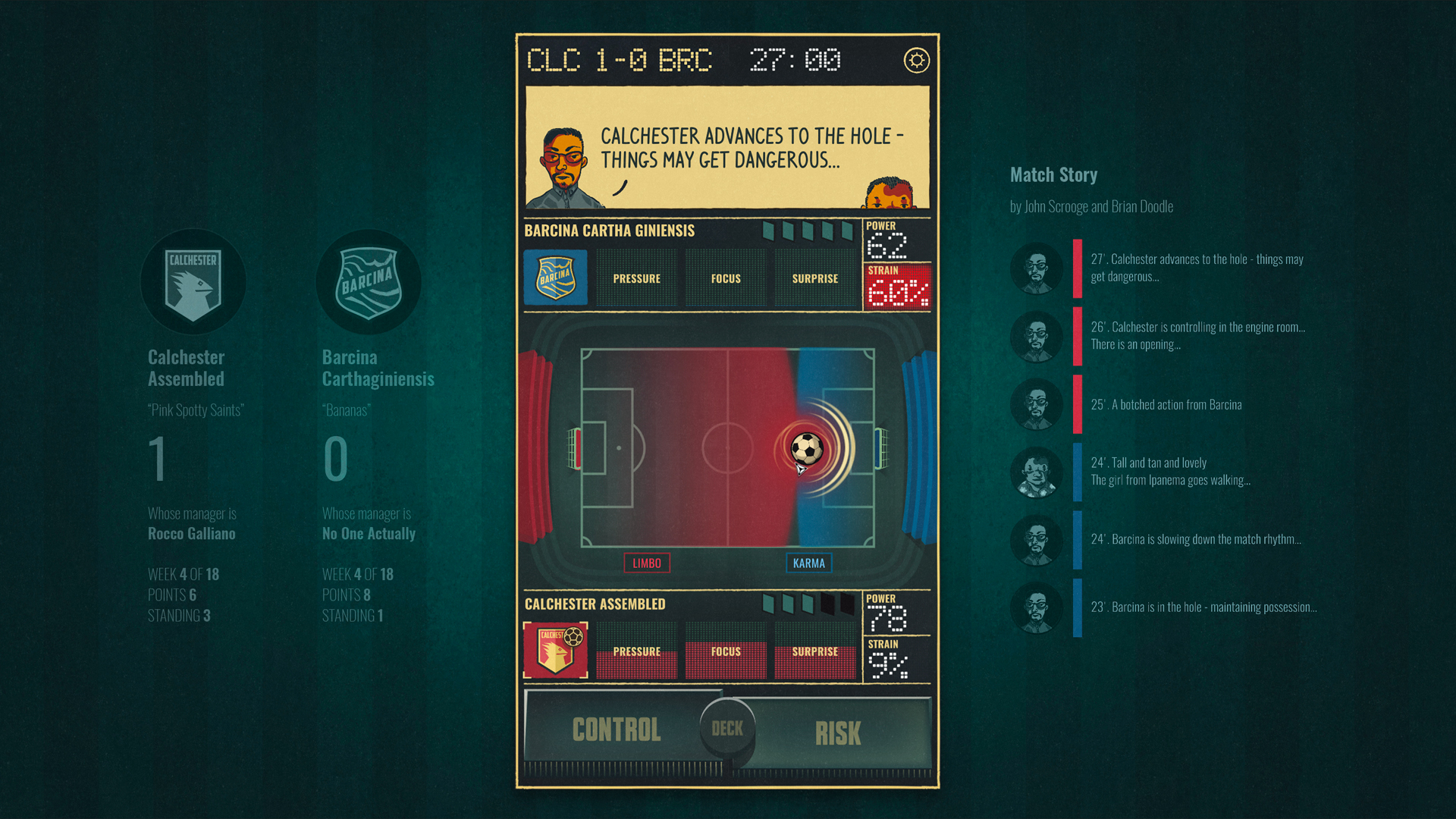
Adding to this depth is the game’s collectible card element. You receive playing cards — like in Hearthstone or Gwent — for every choice you make, and you can use your deck to affect the outcome of matches you play. Instead of basing the card’s designs and uses on soccer’s serious side, though, Football Drama utilizes a tongue-in-cheek approach that satirically looks at the clichés and daft parts of the sport.
“There’s a book called Football Clichés, which has been extremely useful and is a very funny book,” Polsinelli stated. “Football has a very specific language that’s used. Everybody who watches football knows it and it’s become completely unconscious for us. There is a mixture of cards — there are clichés but also lots of technical cards like formation cards. Some cards are also linked to specific episodes in the narrative and you can only get them through making certain choices.”
Deciding when to use these cards and what ones to pick pre-game can have a bearing on what result you end up with too. Rather than represent individual players on the pitch, Football Drama’s match engine uses a unique wave function mechanic that moves the ball towards, or away from, your opponent’s goal. Choosing whether to control possession, take a risk, or play a card factor into whether you can attempt to score or keep a clean sheet. Your team’s power, and the strain you’re placing on them too with your risk-taking or aversion, plays a role as well. This uncharacteristic RTS aspect offers an original spin on soccer simulation, but it wasn’t easy to develop.
“I tried to make a simple model but what’s behind it is not so simple, and not based on randomness,” Polsinelli said. “Each one of the teams has 16 dimensions so every action – whether in attack, defense, or midfield – is balanced based on the state of the 16 dimensions of your team. This all gets composed with a ‘wave’ function. Each team has its own wave, which represents the fact that, in football, the underdog can always win. This doesn’t happen if you have algorithmic parameters and, if you’re dominating, you just win. What I did was set up these wave functions to control the game. Of course, if you have a stronger team then your wave is wider and more powerful, but even a weaker team will have moments were their wave is stronger. If you go for the risky option when your wave is high, even if your team is weaker, you have a chance of scoring. ”
Football Drama | Soccer, but not as we know it
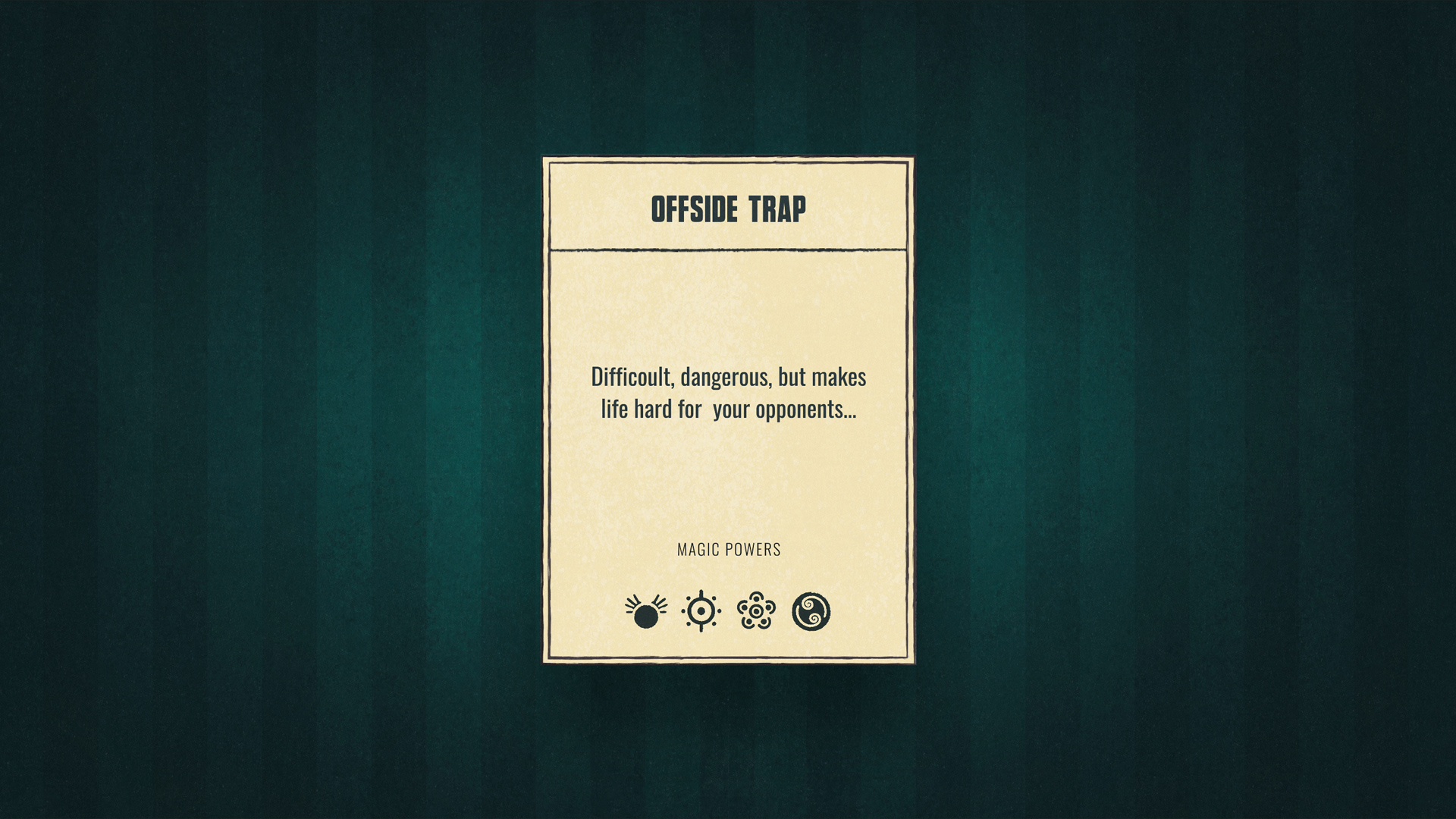
Football Drama’s quirkiness is what makes it striking. Just like other soccer sims before it, it’s a love better to the so-called “beautiful game” even if it takes a different approach. Polsinelli, for his part, doesn’t think there’s one definitive answer as to why soccer is a universally loved sport but believes that it gives us an outlet to the tribal instincts that humans have possessed for millennia.
“I think sports are a great way of expressing this need without going to war,” he said. “If you think about it, Europe hasn’t gone to war for so long and has played so much football — maybe there’s a connection there — and we’re also so passionate about it. I think from reading so many books about sociology and the history of football is that there’s no clear answer but that’s something we can all learn from.”
